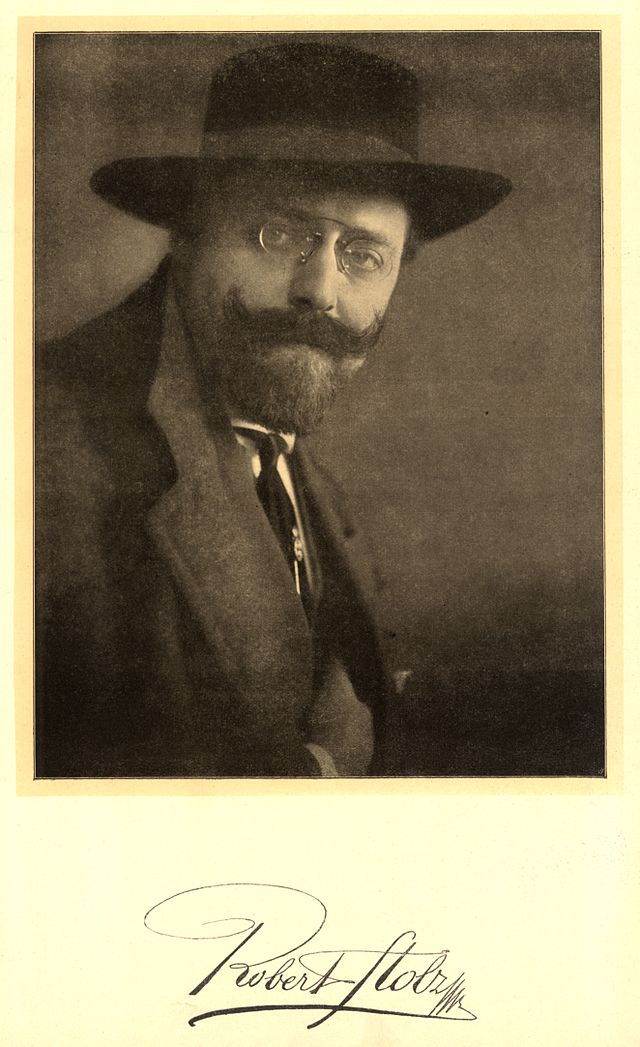- Profession: Composer, conductor.
- Residences:
- Relation to Mahler:
- Correspondence with Mahler:
- Born: 25-08-1880 Graz, Austria.
- Died: 27-06-1975 Berlin, Germany. Aged 94.
- Buried: 04-07-1975 Central cemetery, Vienna, Austria. Grave 32C-24.
Robert Elisabeth Stolz was an Austrian songwriter and conductor as well as a composer of operettas and film music. Stolz was born of musical parents in Graz. His father was a conductor, his mother a concert pianist, and he was the great-nephew of the soprano Teresa Stolz. At the age of seven, he toured Europe as a pianist, playing Mozart. He studied at the Vienna Conservatory with Robert Fuchs and Engelbert Humperdinck. From 1899 he held successive conducting posts at Maribor (then called Marburg), Salzburg and Brno before succeeding Artur Bodanzky at the Theater an der Wien in 1907.
There he conducted, among other pieces, the first performance of Oscar Strauss’s Der tapfere Soldat (The Chocolate Soldier) in 1908, before leaving in 1910 to become a freelance composer and conductor. Meanwhile, he had begun to compose operettas and individual songs and had a number of successes in these fields.
After serving in the Austrian Army in World War I, Stolz devoted himself mainly to cabaret, and moved to Berlin in 1925. Around 1930, he started to compose music for films, such as the first German sound film Zwei Herzen im Dreivierteltakt (Two Hearts in Waltz Time), of which the title-waltz rapidly became a popular favourite. Some earlier Stolz compositions, such as “Adieu, mein kleiner Gardeoffizier” from his operetta Die lustigen Weiber von Wien, became known to wider audiences through the medium of film, after it was interpolated into Im weißen Rößl (The White Horse Inn).
The rise of Nazi Germany led Stolz to return to Vienna, where his title-song for the film Ungeküsst soll man nicht schlafen gehn was a hit, but then came the Anschluss, and he moved again, first to Zürich and then to Paris, where in 1939 he was interned as an enemy alien. With the help of friends he was released and in 1940 made his way to New York. After his death in Berlin in 1975, Robert Stolz received the honour of a lying-in-state in the foyer of the Vienna State Opera House. He was buried near Johannes Brahms and Johann Strauss II in Vienna’s , and a statue to him was erected in the Wiener Stadtpark.



